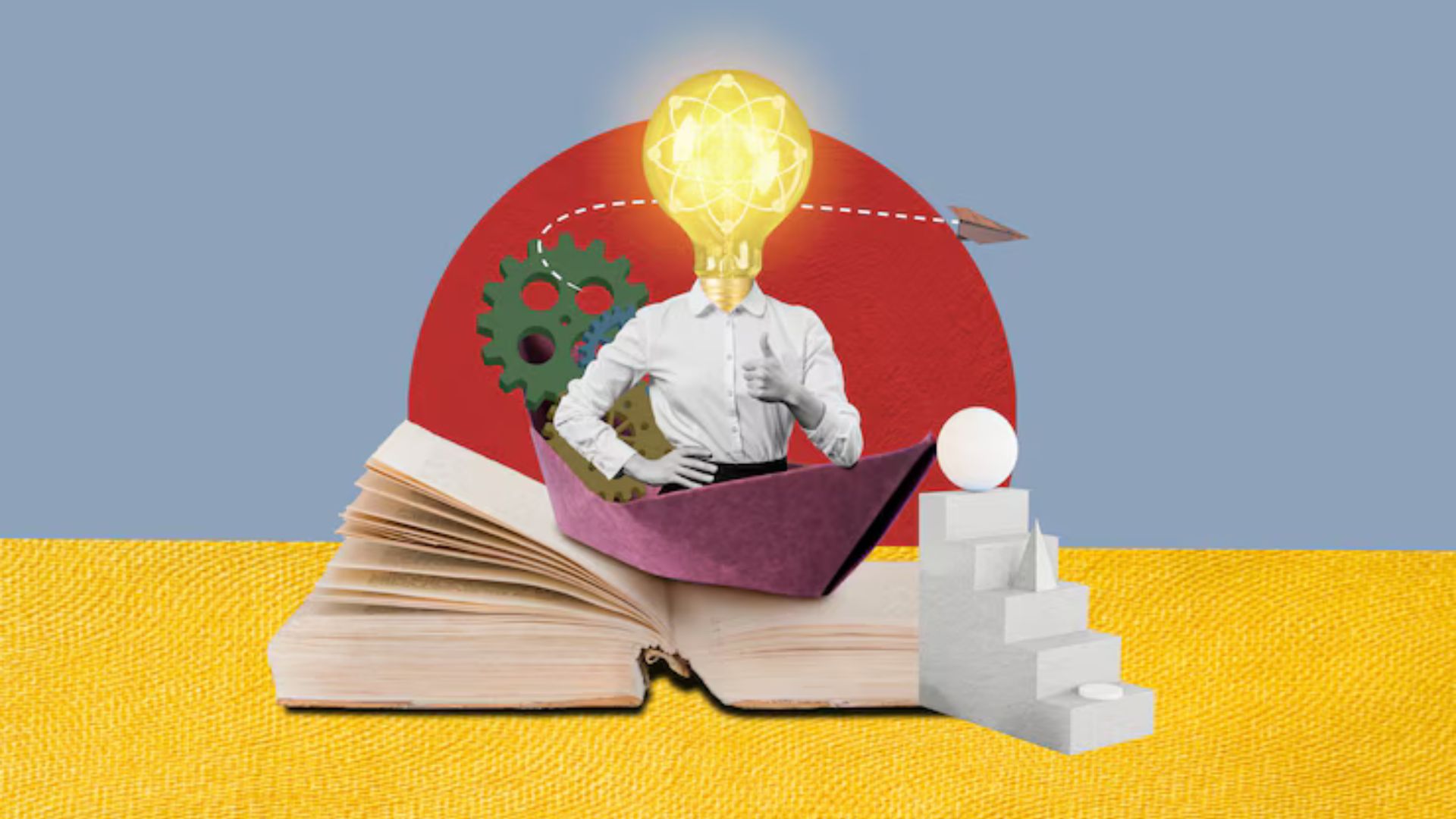How to Learn Faster: Unlocking Your Brain’s Potential
Learning is an essential skill, whether you’re studying for exams, mastering a new skill, or gaining knowledge for personal growth. But, how can you learn faster and more efficiently? This article explores proven strategies and techniques that can help you enhance your cognitive abilities, improve focus, and ultimately accelerate your learning process. By following these tips, you can boost your brainpower and make the most of your time and effort.
Understand Your Learning Style
One of the first steps in learning faster is understanding your unique learning style. People have different ways of processing and retaining information. There are generally four main learning styles:
Visual learners: Prefer to see information in the form of diagrams, charts, and written instructions.
Auditory learners: Learn best through listening, such as by hearing lectures, podcasts, or discussions.
Kinesthetic learners: Thrive on hands-on activities, such as experiments, role-playing, or building things.
Reading/writing learners: Excel when they read and write to process and remember information.
Identifying your learning style helps you tailor your approach to the material, enabling you to absorb information more effectively and quickly. For example, visual learners should use diagrams or infographics, while auditory learners may benefit from recording and listening to lectures.
Create a Structured Learning Schedule
One of the best ways to learn faster is to create a learning schedule that suits your lifestyle. A structured approach helps break down the material into manageable chunks and ensures that you stay on track. Use the following tips for creating a schedule:
Set realistic goals: Break down your learning tasks into smaller, achievable goals.
Prioritize: Focus on the most important topics first and tackle difficult concepts when your mind is freshest.
Consistency is key: Stick to your schedule and make learning a regular part of your daily routine.
A structured schedule helps avoid procrastination, keeps you organized, and ensures that you spend enough time on each topic to achieve mastery.
Apply Active Learning Techniques
Active learning involves engaging with the material in an interactive way rather than passively reading or listening. When you actively participate in your learning process, your brain processes and retains information more effectively. Here are a few active learning techniques to try:
Teach someone else: Explaining what you’ve learned to someone else is one of the best ways to solidify your understanding.
Use flashcards: Flashcards help with memorization by forcing you to recall information regularly.
Practice retrieval: Instead of simply reviewing notes, actively try to recall information from memory, as this strengthens your retention.
Mind mapping: Create visual representations of concepts, which can help you organize and connect ideas in your mind.
By incorporating these techniques, you can engage with the material more deeply and remember it longer.
Space Out Your Learning (Spaced Repetition)
Spaced repetition is a technique based on the concept of spreading out your study sessions over time, rather than cramming all at once. Research has shown that spaced learning significantly enhances long-term retention. Here’s how you can use this technique:
Use spaced repetition software: Tools like Anki or Quizlet allow you to create flashcards and review them at increasing intervals.
Break study sessions into chunks: Instead of studying for hours straight, break your sessions into shorter intervals with breaks in between.
Review frequently: Space out your reviews of the material over days, weeks, or even months.
Spaced repetition works by reinforcing memory at the optimal moment before you’re likely to forget, which helps consolidate information in your long-term memory.
Focus on Deep Work and Minimize Distractions
Learning faster requires deep focus and concentration. Distractions, such as social media, multitasking, or noise, can severely impact your learning efficiency. Here are some tips to improve focus during study sessions:
Eliminate distractions: Turn off notifications on your phone and computer. Create a quiet study environment free from interruptions.
Use the Pomodoro Technique: This involves working in focused 25-minute intervals, followed by a 5-minute break. After four intervals, take a longer break.
Set specific goals: Before you start studying, clearly define what you want to achieve in each session. This will help you stay focused.
By minimizing distractions and allowing your brain to enter a state of deep work, you can significantly improve your learning speed.
Improve Your Memory
A strong memory is crucial for learning faster. The more you can remember, the less time you need to spend revisiting the material. Here are some strategies for boosting memory:
Mnemonic devices: Use memory aids, such as acronyms, rhymes, or visualization techniques, to help remember complex information.
Chunking: Break large amounts of information into smaller, more manageable chunks. For example, when memorizing a phone number, you divide it into sections.
Association: Link new information to something you already know. The more connections you make, the easier it is to retrieve the information.
Practicing memory-boosting techniques can significantly enhance your ability to recall important information, reducing the need for repetitive studying.
Take Care of Your Brain and Body
Your physical health directly impacts your cognitive performance. Taking care of your body and brain can improve your ability to learn and retain information. Consider these habits:
Sleep: Sleep is essential for memory consolidation and cognitive function. Aim for 7-9 hours of quality sleep each night.
Exercise: Physical activity increases blood flow to the brain, boosting focus and memory.
Healthy diet: Eat brain-boosting foods like fruits, vegetables, nuts, and fish rich in omega-3 fatty acids.
Hydration: Dehydration can impair cognitive function, so drink plenty of water throughout the day.
By prioritizing your physical health, you can optimize your brain’s ability to learn faster.
Use Technology and Learning Tools
In today’s digital age, technology can be a powerful tool for learning faster. There are a variety of apps, websites, and online courses that can enhance your learning experience. Some useful tools include:
Note-taking apps: Tools like Evernote or Notion can help you organize your notes and access them anywhere.
Educational platforms: Websites like Coursera, Udemy, or Khan Academy offer courses on virtually any topic.
Online forums and communities: Join online communities like Reddit or StackExchange to ask questions, share knowledge, and get advice from others.
By leveraging technology, you can expand your learning opportunities and gain access to a wealth of information and resources.
Stay Motivated and Positive
A positive mindset and motivation are crucial for learning faster. If you believe that you can learn and succeed, you’re more likely to stay committed to your goals. To maintain motivation, try the following:
Set achievable milestones: Break your goals into smaller, more manageable steps, and celebrate when you achieve them.
Visualize success: Picture yourself mastering the material and reaching your learning objectives.
Stay patient: Remember that learning is a gradual process, and improvement takes time.
By staying motivated and positive, you can overcome challenges and maintain the energy to keep learning at a fast pace.
Conclusion
Learning faster is a skill that can be developed with the right strategies and mindset. By understanding your learning style, creating a structured schedule, engaging in active learning, and taking care of your body and mind, you can accelerate your learning process. In addition, using tools and techniques like spaced repetition, deep focus, and memory improvement exercises will help you retain information and boost your performance.
ALSO READ:Everything You Need to Know About Pizza 14 Inches
FAQs
How can I learn faster if I have limited time?
A: Focus on prioritizing the most important material, use active learning techniques like flashcards, and apply spaced repetition to retain information with less time commitment.
What is the best way to stay motivated while learning?
A: Set small, achievable goals, celebrate milestones, and remind yourself of the long-term benefits of learning to keep your motivation high.
How can I improve my memory for faster learning?
A: Use memory techniques such as mnemonic devices, chunking, and associations to make recall easier and strengthen your memory over time.
Can technology help me learn faster?
A: Yes, educational apps, online courses, and productivity tools can help you access information, organize your learning, and improve efficiency.







